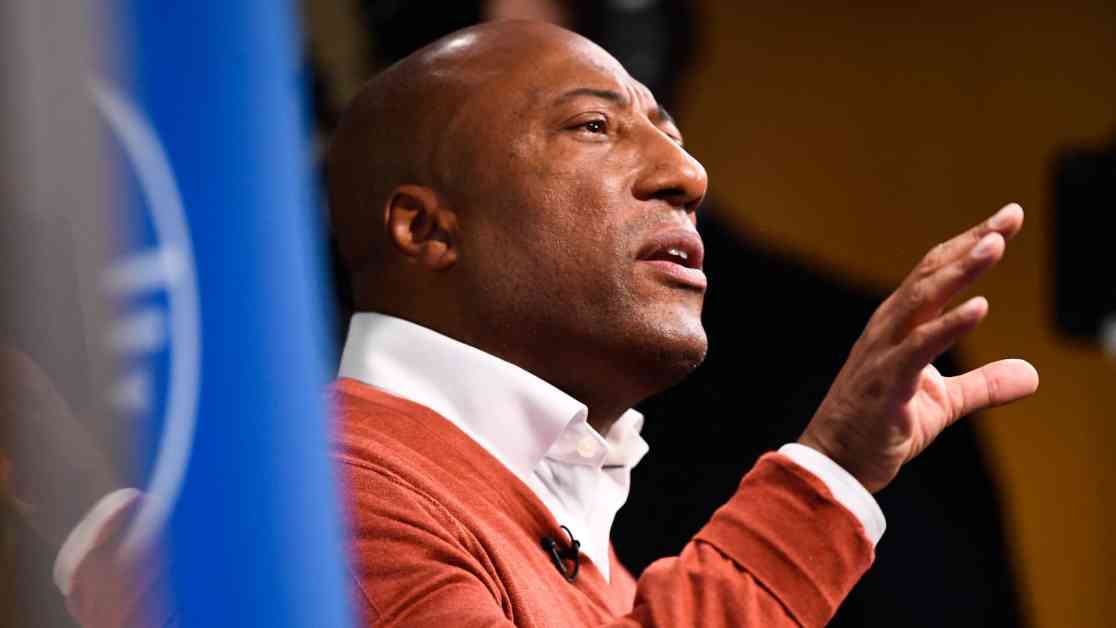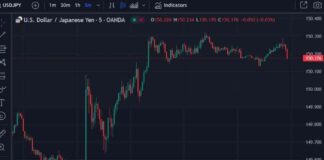Byron Allen, the founder, chairman, and CEO of Entertainment Studios and Allen Media Group, has recently found himself facing backlash for consistently late payments to major network owners ABC, CBS, and NBC. This issue has caused frustration among media allies and has created a rift between Allen and potential deal partners. The stations owned by Allen Media Group have been reported to be as much as 90 days past due on payments to these networks, totaling tens of millions of dollars throughout the year. Despite agreeing to payment plans at Allen’s request, the lateness of these payments has only worsened over time, according to sources familiar with the matter.
Late Payments and Frustrations
The delay in payments from Allen Media Group to networks like ABC, CBS, and NBC has raised eyebrows within the industry. Local broadcasters typically pay substantial fees to larger network owners to carry their brand and content, including live sports events such as NFL games and postseason matches. It is unusual for local broadcasters to consistently pay late, as it can strain relationships with network partners. ABC, CBS, and NBC have expressed growing frustration over the ongoing chase for fees, even after agreeing to payment plans with Allen. The continuous delays have put a strain on the business relationships between Allen Media Group and these major network owners.
Reasons for Late Payments
The reasons behind Allen Media Group’s repeated late payments remain unclear. While the company has made efforts to catch up on outstanding fees after being contacted by CNBC, the root cause of the issue has not been fully addressed. Networks typically collect fees from local affiliates every one to three months, with a significant portion of these funds coming from retransmission fees paid by cable TV operators. This financial structure can create a situation where money needs to be paid out before it is received, leading to potential delays in payments.
Job Cuts and Layoffs
In addition to the late payment issue, various divisions of Allen Media Group have reportedly undergone layoffs in recent months. Stations located across markets in the Midwest, Southeast, West Coast, and Hawaii have been affected by job cuts, with another round of layoffs expected at the end of August. These developments have raised concerns about the financial health and stability of Allen’s company, prompting speculation about the impact of these changes on its operations and future business prospects.
Allen Media Group’s Response
Representatives for Allen Media Group have declined to address the specifics of the late payment issue but have emphasized the company’s growth and success over the years. In a statement, they highlighted the company’s evolution from a small operation founded by Byron Allen to one of the largest and fastest-growing privately-held media companies globally, emphasizing its status as a 100% Black-owned entity. The statement also mentioned the completion of over $1 billion in acquisitions in recent years and the continued support of capital markets for the company’s expansion plans.
Networks’ Responses
ABC, CBS, and NBC have refrained from commenting on the matter, maintaining a discreet stance on the late payment issue. The networks’ frustrations with the delayed payments from Allen Media Group have not been publicly addressed, leaving room for speculation about the potential impact on their business relationships with the media mogul. The lack of official statements from the networks suggests a cautious approach to handling the situation and maintaining professionalism despite the financial challenges faced by their affiliate.
Byron Allen’s Business Ventures
Despite the controversy surrounding late payments, Byron Allen has been actively pursuing large-scale acquisitions in the media industry. His bids for various media assets, including Paramount Global, ABC, and Disney networks, have garnered attention for their ambitious scope and financial implications. Allen’s interest in expanding his media holdings has led to multiple acquisition attempts, with varying degrees of success. However, the late payments issue has raised concerns among investment bankers and financial institutions about Allen’s credibility as a serious buyer for major media assets.
Challenges in Media Industry
The media landscape is undergoing significant changes, with the rise of streaming platforms and the decline of traditional TV viewership impacting broadcast station groups like Allen Media Group. The shift from cable TV to streaming services has created challenges for broadcasters in generating revenue through advertising and retransmission fees. As more viewers opt for online streaming options, traditional broadcasters face pressure to adapt to changing consumer preferences and technological advancements.
Future Prospects and Opportunities
Despite the current challenges facing Allen Media Group, the company remains committed to its growth and expansion plans. With a portfolio that includes broadcast stations, small TV networks, and digital platforms like TheGrio, Allen Media Group is poised to capitalize on emerging opportunities in the media industry. As the landscape continues to evolve, Byron Allen’s vision for the company’s future growth and success remains steadfast, driven by a commitment to innovation and strategic partnerships.
In conclusion, the late payments issue facing Byron Allen and Allen Media Group underscores the complexities of the media industry and the challenges of navigating financial obligations in a rapidly changing landscape. While the repercussions of these delays remain to be seen, the company’s resilience and determination to overcome obstacles suggest a potential for growth and success in the long term. By addressing the root causes of the late payments and enhancing communication and transparency with network partners, Allen Media Group can strengthen its position in the industry and forge stronger relationships with key stakeholders. As Byron Allen continues to pursue ambitious acquisitions and expand his media empire, the lessons learned from this experience will undoubtedly shape the company’s future strategies and priorities in an ever-evolving media landscape.

















